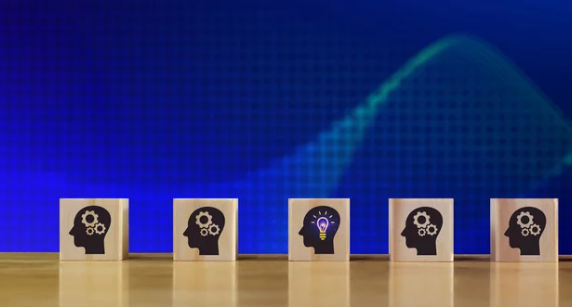

Cultivating Critical Thinking Skills in the Workplace
In today’s rapidly changing business landscape, companies need more than just technical skills to thrive—they need employees who can think critically, analyze complex situations, and come up with innovative solutions. Critical thinking skills are essential for driving growth, solving problems, and making sound decisions in the workplace. But what exactly is critical thinking, and how can companies cultivate this valuable skill within their teams? What Are Critical Thinking Skills? Critical thinking refers to the ability to objectively analyze information, evaluate evidence, identify biases, and make reasoned decisions. It involves questioning assumptions, considering different perspectives, and using logic to solve problems. Critical thinkers don’t simply accept information at face value—they dig deeper, ask questions, and approach challenges with an open and inquisitive mind. In the workplace, critical thinking is especially important because it helps employees make informed decisions, avoid costly mistakes, and develop innovative solutions to complex problems. It’s a skill that applies across all levels and departments, from leadership to entry-level roles. In today’s rapidly changing business landscape, companies need more than just technical skills to thrive—they need employees who can think critically, analyze complex situations, and come up with innovative solutions. Critical thinking skills are essential for driving growth, solving problems, and making sound decisions in the workplace. But what exactly is critical thinking, and how can companies cultivate this valuable skill within their teams? Critical thinking refers to the ability to objectively analyze information, evaluate evidence, identify biases, and make reasoned decisions. It involves questioning assumptions, considering different perspectives, and using logic to solve problems. Critical thinkers don’t simply accept information at face value—they dig deeper, ask questions, and approach challenges with an open and inquisitive mind. In the workplace, critical thinking is especially important because it helps employees make informed decisions, avoid costly mistakes, and develop innovative solutions to complex problems. It’s a skill that applies across all levels and departments, from leadership to entry-level roles. What Are Critical Thinking Skills? Critical thinking skills are vital to an organization's success for several reasons: Better Decision-Making: When making decisions critical thinkers consider various aspects of the information. This leads to improved decision making that favors reasonable and appropriate solutions in relation to foreseeable effects in the short-run and overall effects in the long-run. Problem Solving: In any environment people have conflicts and issues to solve, that cannot be solved with formulas. Critical thinkers understand the nature of issues and learn how to analyze them with the aim of defining the causes of specific issues and coming up with the best solutions to those problems. Innovation and Creativity: Creativity blooms where employees are willing to repel the corporate ladder, and upset existing order of the things, turning problems into opportunities. Being creative also exposes critical thinking as a potentially fresh and abundant supply of innovative concepts and so on. Adaptability: The current workplace environment keeps on changing and employees who are able to think critically are suited for change. They can analyze new conditions, appraise threats and make changes that allow an organization to progress. Collaboration: Contrary to what some people may believe, critical thinking is not something that is exclusive to the functioning of the individual mind, but it does in fact boost the performance of a team. Being critical, individuals can have productive arguments, hear what others have to say, and make a constructive input in projects. Critical thinking skills are vital to an organization's success for several reasons: Critical thinking skills are vital to an organization's success for several reasons: Better Decision-Making: When making decisions critical thinkers consider various aspects of the information. This leads to improved decision making that favors reasonable and appropriate solutions in relation to foreseeable effects in the short-run and overall effects in the long-run. Problem Solving: In any environment people have conflicts and issues to solve, that cannot be solved with formulas. Critical thinkers understand the nature of issues and learn how to analyze them with the aim of defining the causes of specific issues and coming up with the best solutions to those problems. Innovation and Creativity: Creativity blooms where employees are willing to repel the corporate ladder, and upset existing order of the things, turning problems into opportunities. Being creative also exposes critical thinking as a potentially fresh and abundant supply of innovative concepts and so on. Adaptability: The current workplace environment keeps on changing and employees who are able to think critically are suited for change. They can analyze new conditions, appraise threats and make changes that allow an organization to progress. Collaboration: Contrary to what some people may believe, critical thinking is not something that is exclusive to the functioning of the individual mind, but it does in fact boost the performance of a team. Being critical, individuals can have productive arguments, hear what others have to say, and make a constructive input in projects. How to Develop Critical Thinking Skills in the Workplace Some people are more endowed with good critical thinking skill than others; however, critical thinking skills are not innate and can as well be trained fully among all group of workers. Here are some strategies companies can use to foster critical thinking skills among employees: Here are some strategies companies can use to foster critical thinking skills among employees: Encourage Curiosity: Build a culture that supports the questions. Remind the employees about the importance of asking questions, looking for new information and perceiving things in a different manner. Allow me to postulate how leaders can exemplify this behavior in their organizations through process improvement ideas: Promote Open Dialogue: Encourage people to speak their mind and have the open discussions in which people can challenge each other constructively. This can be done by facilitating the expression of ideas and opinions in the course of the meeting, in group discussions or projects. Provide Training and Resources: Employ training sessions that will address problem-solving skills for example logical sessions, decision-making skills among others. Other forms of learning resources including books, articles and online courses can also help in learning that is continuous in this area as well. Challenge Assumptions: Always push your employees for creativity for them to look for an opportunity to rise above ordinary ideas. This may be possible by provision of exercises that involve the employees to challenge the prevailing paradigm, challenge the existing organization’s methods, or explore new solutions to organizational problems. Use Real-World Scenarios: Ensure that the employees have the avenue through which they can practice critical thinking at the workplace setting. This may include issues such as actual case studies, scenarios, or exercises, for instance role-play involving the scenarios that they are bound to encounter in their capacity. Wrkmen’s Approach to Cultivating Critical Thinking At Wrkmen, everybody knows that critical thinking is the engine of change, the foundation of success. That is why, we affirm our policy to develop organizational culture that promotes questioning, discussion and innovation. Our organizational culture therefore dictates that critical thinking is not only a competency, but also an organizational culture through and through. Our approach includes: Collaborative Problem-Solving Sessions: One of the ways is to have problem solving sessions which are usually cross-functional, and involve employees from the different departments. These sessions are planned for the purpose of getting a pluralistic view, asking questions and generating new ideas. Continuous Learning Opportunities: Training never just ends at Wrkmen since firm is always keen on conducting several training sessions which are majorly based on critical thinking. Whether through formal logic and argumentation classes or through case analyses and role play our employees are daily applying critical and creative thinking into practice at the workplace. Mentorship and Peer Learning: Thus, we postulate that critical thinking can be enhanced when there is collaboration and or when there is a mentorship. That is why we promote cross-functional learning and knowledge-sharing among employees that allows them both to learn from each other while expose to new ideas and approaches to problem solving. Innovation Labs: Our innovation labs give the employees a platform to work on something new, see if the assumptions made in concept phase are viable and how far they can proceed with a radical thinking. Through embracing a sustainable and innovative culture at our firm, we are ensuring that our team members start to solve problems in an innovative manner. Conclusion This is probably more and more true in a global environment where issues are becoming more dynamic and the rate of change continues to intensify. The development of these resources in the context of practice means that companies can help their workers make the right decision, avoid mistakes when solving certain problems, and become the prosthetic of innovation. At Wrkmen is dedicated to establishing a corporate culture of critical thought process as well as the applicability of rationality, logic, and creativity to all the tasks we perform. This shows good faith in improving critical thinking central abilities as a way of preparing the team for current organization challenges and in fact charting a productive future for the organization.
GENERAL
Wrkmen
8/20/20241 min read
Projects
CSR
NSDC
PBSSD
UNICEF
Copyright © 2025 All rights reserved | WRKMEN
Useful Links
Training
Placement
Writing
Consulting
IOT & Development


Wrkmen drives innovation with purposeful digital solutions. Discover our vision, services, and projects. Together, we create technology that inspires growth, trust, and lasting impact in every journey.
